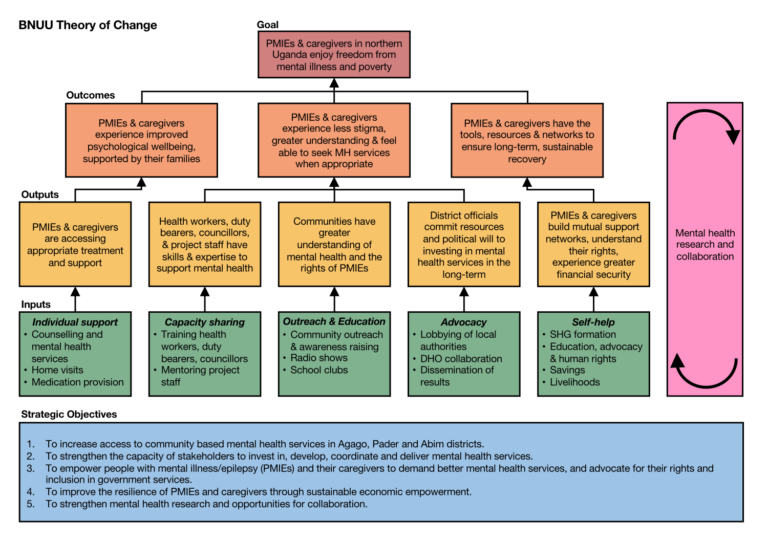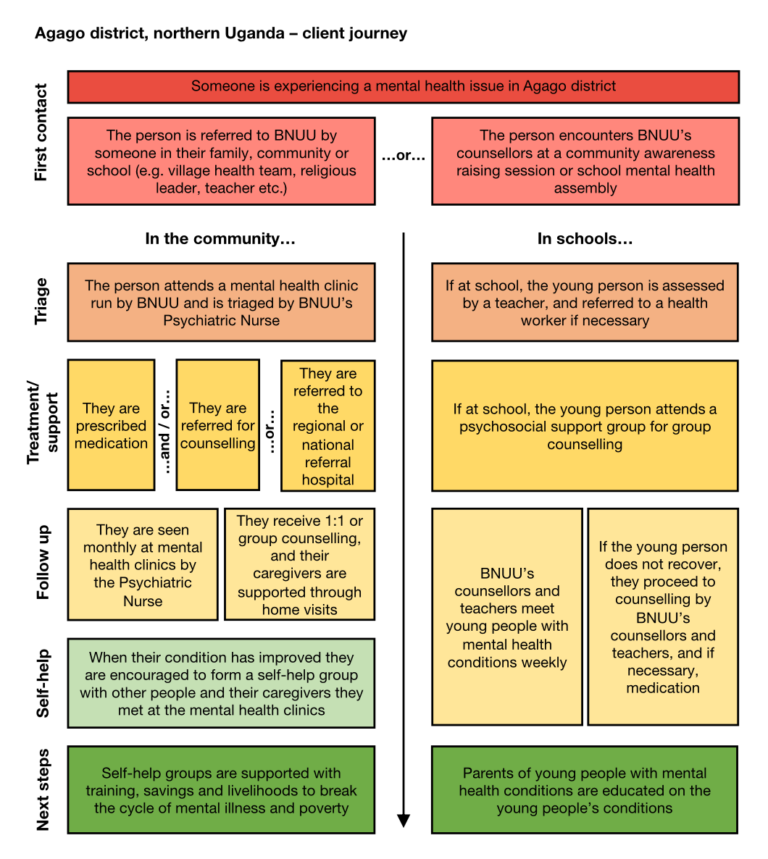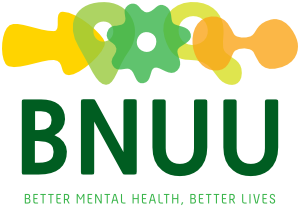Theory of Change
The Theory of Change shows our overarching goal and the steps that we need to take to achieve it.
Client journey
Once our clients have been referred to BNUU for mental health support they follow a journey to recovery, which is our model that we have developed and refined over several years.
Individual support
We provide mental health services to people with mental illness/epilepsy which includes the provision of medical treatment, counselling, home visits, and mental health education for clients, and establishing a sustainable supply of mental health medicine by initiating community drug banks.
Capacity sharing
We raise awareness of mental health and train mental health stakeholders which include both health workers and other stakeholders and duty-bearers e.g. police, community development officers, local leaders, religious leaders, traditional healers and other relevant government employees. We use the WHO’s Mental Health Gap Action Programme intervention guide (mhGAP-IG) for mental, neurological and substance use disorders in non-specialist health settings.
Outreach & Education
We hold community awareness raising sessions with young people in schools and the wider community, sharing information about mental health services and reducing the stigma towards people with mental illness/epilepsy. We also provide mental health training to teachers to strengthen their capacity and to identify and support young people who are experiencing mental illness/epilepsy.
Advocacy
We conduct research, record change stories, train and empower service users to advocate for better mental health services and influence policy.
Self-help Groups
We encourage people with mental illness/epilepsy and their caregivers to form self-help groups. As well as providing a much-needed support network, these self-help groups also receive crucial and valuable training in savings and loans, setting up and managing drug banks, financial literacy, enterprise selection, so that when they receive livelihood start up items, they are well prepared to make the most of the opportunity.
Livelihoods
We promote sustainable livelihoods by supporting stabilized people with mental illness/epilepsy and their caregivers to resume their original work and/or identify suitable business opportunities in their local community that will enable them enter the local job market. BNUU supports them by matching individual skills and capabilities to available business opportunities and provides them with start-up funds.



